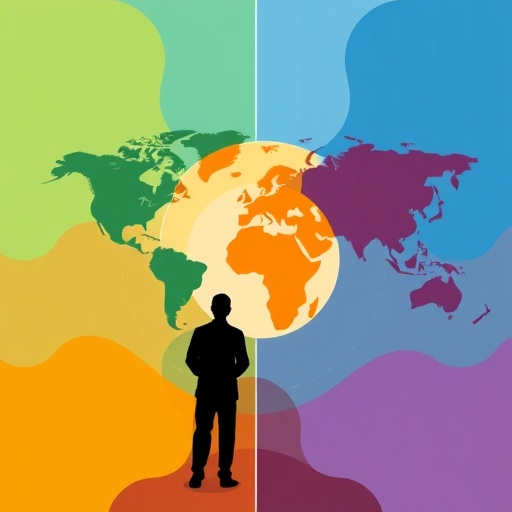In a landscape where understanding oneself has become an increasingly complex endeavor, the emergence of a Personal Worldviews Framework offers a transformative pathway for self-reflection and comprehension. Renowned scholar R. Flanagan’s work addresses the myriad challenges individuals face when attempting to articulate and grasp their identities through the lens of personal beliefs and experiences. With humanity’s evolving narrative, a comprehensive examination of one’s worldview can significantly impact personal growth and societal interactions.
Flanagan’s analysis delves into the fundamental question: what shapes our understanding of self? In a world where cultural distinctions and diverse belief systems intersect, it becomes essential to discern how these factors influence an individual’s identity. The Personal Worldviews Framework serves as a guide, navigating the intricate layers of personal belief systems, cultural heritage, and individual experiences. By deconstructing these elements, individuals can begin to see the essential threads that weave together their unique narratives.
At the core of this framework lies the acknowledgment that each person possesses a unique blend of experiences and beliefs that form their worldview. These elements contribute to decision-making processes, moral understandings, and interpersonal relationships. Flanagan emphasizes the importance of recognizing these elements to foster a deeper understanding of one’s self. This recognition can lead to profound personal insights that challenge preconceived notions and encourage personal evolution.
The framework also addresses the impact of external influences on one’s self-perception. Social media, peer groups, and prevailing societal norms can significantly alter how individuals see themselves. Flanagan argues that critical reflection is crucial in navigating these influences. By providing tools for self-discovery, the Personal Worldviews Framework encourages individuals to sift through societal messaging and find clarity in their identities, thus developing a stronger sense of self.
Moreover, the Personal Worldviews Framework is an essential tool for educators and mental health professionals. It offers a structured approach to help individuals, particularly students, articulate their personal beliefs and understand how these beliefs shape their values and choices. By integrating this framework into educational settings, educators can foster environments where students are empowered to explore their identities and develop critical thinking skills essential for their personal growth.
An essential aspect of this exploration involves examining the cognitive processes underpinning personal belief formation. Flanagan introduces psychological theories that explore how experiences, emotions, and cognitive biases intermingle to create one’s worldview. Understanding these psychological underpinnings can shed light on why individuals might feel a disconnect between their stated beliefs and actual behaviors. This nuanced understanding paves the way for fostering authentic change in personal and social contexts.
The framework also invites discussions surrounding the influence of cultural and religious backgrounds on personal identities. Many individuals grapple with the legacy of their heritage and how it fits into their contemporary lives. Flanagan’s research encourages individuals to honor their backgrounds while also carving out spaces for growth and transformation. In doing so, the framework creates pathways for dialogue around identity that can lead to deeper cross-cultural understanding and empathy.
As societal dynamics continue to evolve, the necessity for individuals to articulate their personal worldviews becomes even more pressing. Flanagan posits that the Personal Worldviews Framework can serve both as a reflective tool and a means to bridge understanding across diverse groups. In a world rife with polarization, the ability to communicate one’s beliefs and experiences could be pivotal in fostering mutual respect and collaboration.
In addition to personal development, the implications of Flanagan’s research extend into the realms of community building and social change. A shared understanding of personal worldviews has the potential to unite people from varied backgrounds through a common language of self-discovery. This collective embrace of diversity can be a powerful antidote to divisiveness, allowing for stronger connections and partnerships in various social initiatives across different sectors.
Ultimately, Flanagan’s exploration of self-understanding through the Personal Worldviews Framework is both timely and crucial. It challenges individuals to embark on the often difficult journey of self-reflection while providing them with the necessary tools to navigate this path. As more people engage in this practice, the potential for transformative change on both personal and societal levels becomes increasingly tangible.
The implications of this framework are vast, touching upon educational methodologies, mental health strategies, and community cohesion efforts. It represents a shift toward a more introspective and conscious approach to identity, encouraging a society where understanding the self is not only valued but prioritized. Through this lens, individuals can emerge more resilient, adaptable, and connected to the larger human experience.
In conclusion, Flanagan’s investigation into the challenges of self-understanding through the Personal Worldviews Framework offers a fresh perspective on a timeless quest. As individuals step into this journey of self-discovery, they may find themselves better equipped to navigate an ever-changing world, fostering resilience and understanding in themselves and their communities.
Subject of Research: Personal Worldviews Framework and self-understanding
Article Title: Addressing the challenges of understanding self through a Personal Worldviews Framework
Article References:
Flanagan, R. Addressing the challenges of understanding self through a Personal Worldviews Framework.
j. relig. educ. (2025). https://doi.org/10.1007/s40839-025-00271-6
Image Credits: AI Generated
DOI: https://doi.org/10.1007/s40839-025-00271-6
Keywords: Personal Worldviews Framework, self-understanding, identity, personal beliefs, cognitive processes, cultural impact, education, mental health, community building, social change, resilience, introspection.




